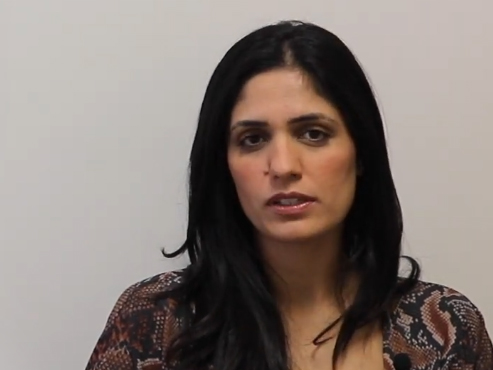Criminal Rehabilitation
Move on from your past and permanently resolve your inadmissibility to Canada
If you are someone with a past criminal conviction outside Canada, you will likely be inadmissible and must request entry into Canada. Criminal Rehabilitation is the permanent solution to your inadmissibility troubles with Canada.
If you have a criminal conviction inside Canada, you may also need to apply for a Canadian record suspension.
When am I eligible for Criminal Rehabilitation?
If 5 or more years have passed since the completion of your criminal sentence (including jail time, termination of probation and payment of all fines), you are eligible for criminal rehabilitation.
How do I know my offense was completed?
Calculating your eligibility for Criminal Rehabilitation depends on the nature of your sentence:
- Suspended Sentence: your offense is completed 5 years from the date of sentencing
- Suspended Sentence with Fine: your offense is completed 5 years from the date you paid all fines
- Jail/Prison without Parole: your offense is completed 5 years from the date you were released
- Jail/Prison with Parole: your offense is completed 5 years from the date your probation ended
- Probation: your offense is completed 5 years from the date your probation ended
- License Suspension/Driving Prohibition: your offense is completed 5 years from the date your probation ended
What do I need to prove to be criminality rehabilitated?
A successful Criminal Rehabilitation application will show the reviewing officer that you have been rehabilitated, will not re-offend and thus are not a risk to Canadians.
To prove this, you must express remorse and show the officer that you have accepted responsibility for your actions and have grown as a person since the offense(s).
Unlike a Temporary Resident Permit (TRP), you do not need to offer a valid reason for traveling to Canada. Instead, you must only prove that you have been rehabilitated and will not re-offend.
What if my Offense was Completed 10+ Years Ago?
Deemed Rehabilitation
If you have been convicted of only one offense outside Canada that was completed over ten years ago, you may automatically be Deemed Rehabilitated. When you are Deemed Rehabilitated, you are free to enter Canada without issue.
Deemed Rehabilitation only applies if your one offense is not considered a “serious offense” under Canadian criminal law. If your offense classifies as a serious offense, you must apply for Criminal Rehabilitation, regardless how old your offense is.
NOTE: As of December 2018, all drinking and driving charges are considered “serious offences”.
Processing Fees
Serious Criminality – $1000 CAD.
If you were convicted of an offense outside Canada and that offense would result in a possible sentence of 10+ years of imprisonment under Canadian law, then that offense is considered a serious criminality.
Non-Serious Criminality – $200 CAD.
Submitting your Application
To avoid unnecessary delays and ensure the quickest processing time, it’s important to provide quality supporting documentation and be as detailed as possible.
Serious Criminality
If your criminal offence is serious in nature, it is likely to translate into an “indictable offence” under Canadian law. On the other hand, if your criminal offence is less serious, then it will likely be labeled a “summary offence” under Canadian law and thus you may be Deemed Rehabilitated once 5 or more years have passed since the completion of your sentence. It is important to note that if your offences translate to a 10-year or more sentence under Canadian criminal law, the offence is labeled as a “serious criminality” and Deemed Rehabilitation does not apply.
Have a Question?
How We Can Help
Compiling a strong and convicting Criminal Rehabilitation application can be a time-consuming and confusing process due to all the requirements, fees and steps to be taken. It’s not just about obtaining the mandatory documentation and submitting your application. To ensure you have the highest chances of success, you must go above and beyond what is simply required.
At VisaPath, our representatives are highly trained and experienced with criminal inadmissibility. Our lawyers and experts will review your court documents and implement a plan of action to properly address your criminal convictions. In addition to preparing a robust and convincing legal submission letter, we will help you formulate a strong personal statement to persuade the reviewing officer and ensure you have the highest chances of success.

If you have any questions or personal inquiries, please do not hesitate to contact us. Call us to book a consultation.
Frequently Asked Questions
What is criminal rehabilitation?
Criminal Rehabilitation is an application for individual who are looking for permission to enter Canada, but they have a criminal record. These individuals are considered criminally inadmissible to Canada, so they need to overcome this inadmissibility. Criminal rehabilitation takes care of your offences on the Canadian side on a permanent basis.
This document is to prove you have been rehabilitated since your offence and prove that you are no longer a risk to Canadian citizens.
Am I eligible for the criminal rehabilitation if I completed my sentence three years ago?
Unfortunately, no, you are eligible to apply for criminal rehabilitation until five years surpasses from the date of completion. This means that when you complete everything that the court has imposed on you then you may be eligible to apply for criminal rehabilitation.
For example, if you got convicted of a DUI in August 2015, then you are eligible to apply for a criminal rehabilitation application August 2020.
What is the processing time for criminal rehabilitation application?
The processing time for a criminal rehabilitation application is around 12 to 18 months. It could take longer depending on the severity of the offence, if it is more than one or two offences, or if you have severe sentences. A lot of factors play into the processing time so ultimately it is up to the immigration officer but more straightforward cases are usually 12 months.

